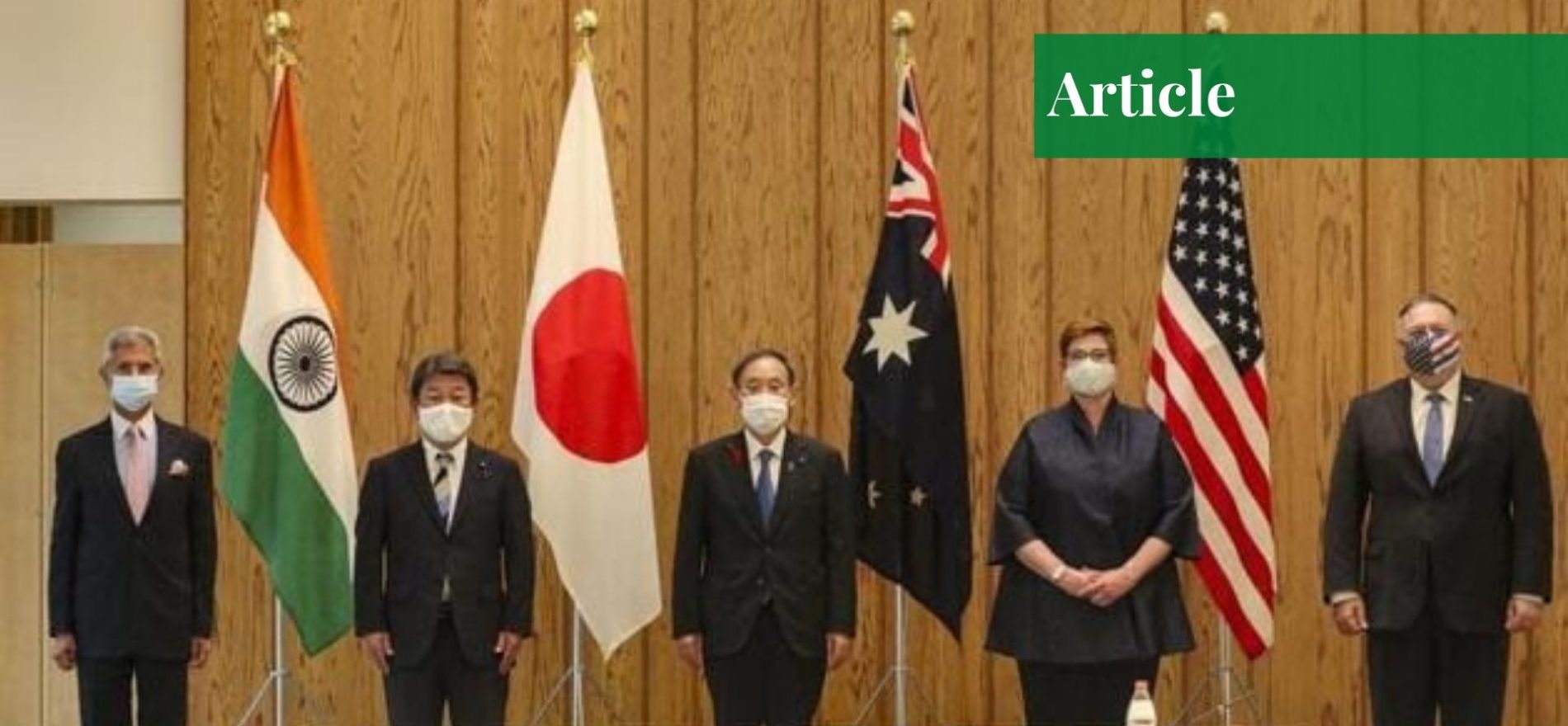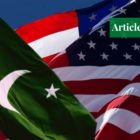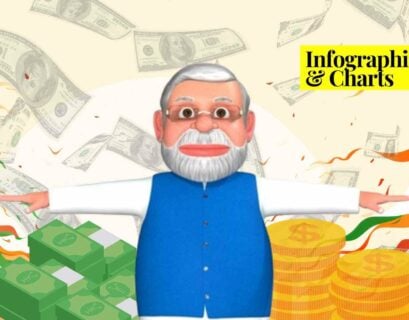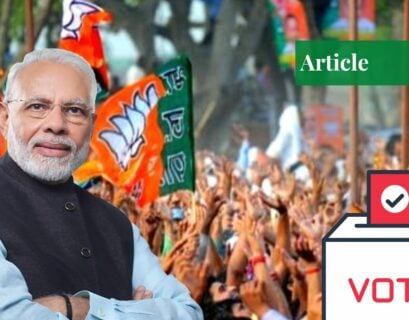QUAD and India’s Ties with the Enemy
The Quadrilateral Security Dialogue (QUAD) which found its way back in 2004 as a disaster relief exercise during the Indian Ocean tsunami, and quickly collapsed in 2008 due to complex regional strategic competition, has become a beacon for the emerging concept of Indo-Pacific. The four founding QUAD member states – Australia, India, Japan, and the United States – revived the group as an informal pact between them that attempts to work toward “a balanced Indo-Pacific region.”
Based on what is called the “common interests” of these countries QUAD’s revival in 2017 by the four nations has more doubts than clear strategic goals. The only apparent, yet strongest factor that worked as a binding force between the member countries of QUAD is China’s exponential rise as an economic powerhouse.
Chinese foreign minister Wang Yi’s visit to India after a long haul, especially after the clashes on the China and India border, can be a signal toward mending broken relationships between India and the People’s Republic of China (PRC). This has the potential to change the entire QUAD equation now that India has twice abstained from voting in the UN General Assembly meetings on the Russia-Ukraine war.
On top of that, Foreign Minister of Russia Sergey Lavrov’s high-profile visit to New Delhi created an added atmosphere of uncertainty with QUAD. The piece will discuss the present scenario with the possible future implications of QUAD as an emerging regional organization representing the Indo-Pacific region.
The Implicit Anti-China Structure
The subsequent meetings of QUAD since its revival never explicitly mentioned China but it is clearly evident that it is a mechanism for balancing China in the region. The initial meetings of the revived QUAD showed visible strong cooperation among the member states which popped up several positive possibilities for the future. QUAD’s diplomatic and military dispositions were widely viewed as a responsive retaliation against the rising Chinese economic and military power.
The guiding principles which are described as the driving force for the Quadrilateral Security Dialogue are securing a rules-based global order, a liberal trading system, and freedom of navigation. The recent meeting of the foreign ministers of QUAD members is evidence of how important it has become as a mode of geopolitical signaling.
The latest meeting of the QUAD strengthened four important points of the present stage of evolution of the dialogue. All the member states represent a domestic political consensus on the Quadrilateral Security Dialogue and its importance in balancing China in the Indo-Pacific. This was not true in the past. Australia, for example, changed its QUAD policy when there was a change in government.
The expanded areas, from the maritime realm to cyberspace, on which the members have agreed to work together are aimed at countering China’s influence and capabilities. The foreign ministers of the member states made it a formality to hold high-level meetings once every year and this development clearly shows that the concept of the Indo-Pacific is being upheld both institutionally and geographically. The progress and development of QUAD as an institution representing the Indo-Pacific region is set to deepen and widen.
Present Scenario and the Challenges
While QUAD is already subjected to uncertainties and gaps in its policies regarding the Ukraine war, the visits of the Chinese and Russian foreign ministers changed the equation as a whole. The dialogue which had revived once again with much vigor and enthusiasm is subjected to several hiccups that might act as impediments to the smooth and successful functioning.
1. Inability to Achieve Objectives
QUAD, in spite of its enthusiastic first several meetings since its re-emergence, lacks the integrity to attend and address the contemporary challenges of the region of Indo-Pacific like enhancing access to affordable vaccines, medicines, and medical equipment.
Apart from this, countering the spread of disinformation, counter-terrorism, maritime security, strengthening democratic resilience, upholding the rules-based international order, respect for territorial integrity and sovereignty, freedom of navigation in the international seas, climate change, humanitarian assistance, and disaster relief and resilience are the objectives of QUAD to establish an open and inclusive Indo-Pacific region.
However, all these target objectives somehow have anti-China undertones which are gradually becoming more and more prominent. The momentum increased more during the wake of the COVID-19 crisis during which the bilateral relations between the PRC and the QUAD member states deteriorated considerably.
2. The Indo-Pacific vs Asia Pacific Debate
The concept of Indo-Pacific is subjected to various criticisms against the concept of Asia Pacific. The former is categorically rejected by China whereas, the latter concept is gaining more and more popularity in the West, especially from the European Union (EU). The concept of Indo-Pacific however is subjected to several debates.
There are schools of scholars who argue the concept to be an American concept of mechanism for the establishment of US hegemony in the region. The US Department of Defense went on to describe it as “the single most consequential region for America’s future.” As obvious as it is, the Indo-Pacific strategy was pursued by the US as a part of its attempts to maintain its global dominance.
The US has always emphasized that it always stood for the ideology of a “rules-based international order,” the crux of which is lucrative enough for the democratic states to consider it very seriously. The concept, first coined by the then prime minister of Japan, Shinzo Abe, was based on the geopolitical area connected by the Indian and the Pacific oceans which includes India and the rim countries of the Indian Ocean.
This is severely criticized by China and its allies as the notion of Indo-Pacific is gradually making its way into the international geostrategic discourses, threatening the existing notion of Asia Pacific which is more of an economic conception unlike the former which is more vast, undefined, and associated mainly with maritime security and cooperation.
The Asia Pacific includes northeast and southeast Asia, and the Oceania region which is dominated by economic powerhouses, especially China. The Asia Pacific saw a boom in the economy since the late 1980s, attracting global attention as a zone of emerging markets. However, only the Asia Pacific Economic Forum effectively represented what can be called the Asia Pacific region.
There are other regional organizations that include the region but are kind of overlapping in nature, like the Association of Southeast Asian Nations (ASEAN), the Shanghai Cooperation Organization (SCO), and the Asia Cooperation Dialogue, etc. Indo-Pacific on the other hand is an emerging regional concept that is slowly cementing itself as a region with QUAD being the representational organization.
However, it is more of a replacement for the US strategy in Asia after the shift in the power balance in the Asia Pacific with China growing as an economic giant. The Trump administration’s withdrawal from the Trans-Pacific Partnership (TPP) created another vacuum in the region that China readily wants to fill up.
China has already applied for the membership of TPP’s successor – the Comprehensive and Progressive Agreement on Trans-Pacific Partnership (CPTPP) – on 16th September 2021 and if it gains membership then the US’ re-entry will be very difficult. As such, QUAD might be an attempt to “rectify” the mistakes of the Trump administration by President Biden.
3. The Ukrainian War
In the current situation, with Putin’s war on Ukraine, the political equations seem not in the favor of the QUAD’s smooth functioning as the member states are not on the same footing. New Delhi’s decision to maintain a neutral position on the war against Russia, so as to not harm India-Russia relations, has drawn serious flak on behalf of the US. Australia’s inconsistency in withdrawing and re-entry along with the fact that it criticized China for abstaining from voting in the UNGA but not India for doing the same, has undermined its credibility.
4. The Uncertain Future of QUAD
Along with these issues, the visits paid by foreign ministers from both China and Russia created uncertainties about the future of the Quadrilateral Security Dialogue. In spite of the fact that there are ministerial-level meetings back to back along with regular Malabar maritime military exercises by the QUAD member states, the considerable Chinese and Russian influence on the member states, especially India makes the future of QUAD quite debatable.
5. The Ministerial Visits
Chinese foreign minister Wang Yi’s visit was sudden and informal which was carried out quietly and was rather cold because of the existence of tensions between India and China over the Galwan clashes. But the visit, however cold or informal it might be, was the first-ever visit in two years.
Laced with tensions and bitterness the visit might not be fruitful but surely might be a precedent of a possible mending of the relationship between the two nations. There might be a possibility of China taking the situation to turn in its favor as India is actively taking part in QUAD meetings which China is extremely against. Sergey Lavrov’s high-level visit however was nothing like Foreign Minister Wang Yi’s visit.
Not only do the India-Russia relations still remain cordial, but the former is also heavily dependent on the Russian supply of military equipment. With the recent Ukraine war, India even started importing oil from Russia. Along with it came the abstinence from voting against Russia, drawing flak from the US. India’s neutral stand on Russia can be deemed as something which can cast an influence on QUAD’s smooth formation into a strategic organization.
Conclusion
The reality surrounding the Quadrilateral Security Dialogue is not as easy and smooth as it is projected. There are seeping discontent and disagreements within the QUAD member states. Irrespective of the fact that there are successful meetings of QUAD where the member nations have showcased confidence in the dialogue’s vision, the Russian and Chinese foreign ministers’ visit to New Delhi, has created an environment of expressed concerns and reservations which might have a head-on consequence on the QUAD’s functioning.
In this case, if China changes its attitude on the regional order (mending relations with India, toning down threats to Taiwan, recognizing the concept of Indo-Pacific, etc.) in order to grab the opportunity to expand its position—both as an economic and geopolitical player—it might be a strong challenge for QUAD. Since national interest comes as a priority for all nations, only time will determine what steps the QUAD member states, especially India, will take on this.
In order for the Quadrilateral Security Dialogue to successfully cement its identity as a formal dialogue, it has to deal with the discrepancies that might cause a hindrance to its functioning. One thing that has to be kept in mind is that times have changed and with the new emerging concepts and order, old political equations will eventually become obsolete. QUAD’s future course of action will prove whether it will become a prominent dialogue or fail to address the main vision of a “free Indo-Pacific” on which it was revived.
If you want to submit your articles, research papers, and book reviews, please check the Submissions page.
The views and opinions expressed in this article/paper are the author’s own and do not necessarily reflect the editorial position of Paradigm Shift.



















